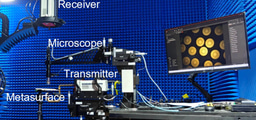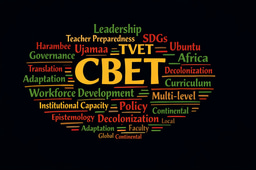Launching the NMDC Ambassador Program for spreading awareness of microbiome data stewardship
Published in Microbiology

Explore the Research

Cohort-based learning for microbiome research community standards - Nature Microbiology
Nature Microbiology - Cohort-based learning for microbiome research community standards
The scale and diversity of microbiome research is staggering, and the amount of omics data being generated for these microbiomes continues to exponentially increase. One consistent challenge for microbiome researchers is data reuse. Many of us have experienced the frustrating and time-consuming task of searching for existing omics datasets, and often when we finally locate this data, important metadata may be difficult to interpret or missing altogether. This inability to effectively reuse microbiome data often leads to the need to re-generate or re-process data, limits accessibility to researchers unable to generate their own multi-omics data, and prevents comprehensive data comparisons and meta-analyses.
The National Microbiome Data Collaborative (NMDC) was launched in 2019 to answer the call to promote broad adoption of Findable, Accessible, Interoperable, and Reusable (FAIR) microbiome data through the use of metadata standards and data stewardship best practices. During our very first meeting with our Scientific Advisory Board in January 2020, we received strong feedback that it was imperative to engage with the research community and to tap into the experiences of early career researchers who serve on the front lines of data wrangling. For our team, it was a clear signal that in order for the NMDC to be successful, we needed to make a strong commitment towards reimagining how the microbiome research community could embrace data stewardship.
Our team spent a year of planning and revisions owing to the ongoing COVID-19 pandemic to conceptualize the NMDC Ambassador Program. Drawing from input from a partnership with the Center for Scientific Collaboration and Community Engagement (CSCCE) and existing programs like the American Society for Microbiology (ASM)'s Young Ambassador Program, we created a yearlong program aligned with our existing infrastructure activities with a dedicated focus on metadata standards. It was both a challenging and rewarding experience to pilot the Ambassador Program, and at the end, we felt compelled to share our experiences more broadly and how we are expanding the Program based on our lessons learned. It was also an opportunity to “co-create” with the phenomenal group of early-career Ambassadors to share their story and highlight the importance of their work.
The NMDC Ambassador Program focused on a cohort-based learning and a community learning model where the NMDC Engagement Team hosted educational sessions with the Ambassadors to train them on FAIR practices for microbiome data. The pilot cohort of this Program focused on microbiome metadata standards, specifically the Minimum Information about any (x) Sequence (MIxS) templates developed by the Genomic Standards Consortium (GSC). Once these Ambassadors were fully trained, they were tasked with hosting their own events and disseminating the training materials and concepts.
The pilot cohort of Ambassadors hosted 23 events over 9 months, reaching over 800 researchers. This wildly exceeded our expectations and encouraged the annual continuation of the Program. The Ambassadors were extremely positive about their participation in the Program, and they provided our team with honest and valuable feedback that has already helped to advance the Program. Many of them continue to work with our team, serving as mentors for the current Ambassador cohort and collaborating on various research activities.
Since the publication of this manuscript, we have welcomed 13 new NMDC Ambassadors as members of our 2023 cohort. Based on feedback from the pilot cohort, the training the 2023 Ambassadors received was expanded to include additional data stewardship concepts including specific information on microbiome data reuse and standardized bioinformatics workflows for microbiome data processing. The training sessions were also expanded to include information and hand-on experiences with the three NMDC products: the NMDC Data Portal, NMDC Submission Portal, and NMDC EDGE.
We could not be more thrilled with the level of enthusiasm already shown by our 2023 Ambassadors, and they have already planned a number of events for this summer. This cohort will expand the Program to new languages, backgrounds, geographic locations, and event formats. We are excited to co-host several workshops with our Ambassadors, and 3 of them will be joining us as panelists for a town hall session at the ASM: Microbes conference in a few weeks. We will continue to annually recruit 10-20 NMDC Ambassadors to expand the reach of the NMDC engagement activities and spread awareness and adoption of microbiome data standards and stewardship. The field of microbiome research has never been so bright: from innovations in human therapeutics to foundational discoveries at continental scales, combined with new tools and technologies to understand microbes and how they impact our daily lives. We need our next generation of microbiome researchers to value and advance open data science, and the Ambassador Program is a step towards this broader effort.
Follow the Topic
-
Nature Microbiology

An online-only monthly journal interested in all aspects of microorganisms, be it their evolution, physiology and cell biology; their interactions with each other, with a host or with an environment; or their societal significance.
Related Collections
With Collections, you can get published faster and increase your visibility.
The Clinical Microbiome
Publishing Model: Hybrid
Deadline: Mar 11, 2026





Please sign in or register for FREE
If you are a registered user on Research Communities by Springer Nature, please sign in